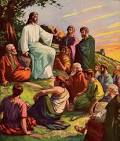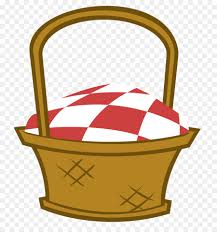John 6:1 – After this, Jesus went away to the other side of the Sea of Galilee, which is the Sea of Tiberias.
John is about to narrate the event which we commonly call 'The feeding of the five thousand'. This is one of the few instances where John records the same miracle as the other gospel writers.
When we read all four accounts, we notice that different writers provide different details. This is a very common occurrence among people in all circumstances.
 For instance, if we have four people at a football game, each one will remember different details about the winning touchdown, because they each notice different things. When discussing the game, they may also share different details based on the point they are trying to convey. For example, one might want to focus on the weakness in the defensive line, while another might want to focus on the abilities of the quarterback. So the details they give will vary; yet they are talking about the same game and the same touchdown.
For instance, if we have four people at a football game, each one will remember different details about the winning touchdown, because they each notice different things. When discussing the game, they may also share different details based on the point they are trying to convey. For example, one might want to focus on the weakness in the defensive line, while another might want to focus on the abilities of the quarterback. So the details they give will vary; yet they are talking about the same game and the same touchdown.
So it is with the narrative of feeding of the five thousand. The narrative is also recorded in Matthew 14:13-21, Mark 6:30-44 and Luke 9:10-17. Although we are focusing on John's account, we will add details and insights from the other gospel writers as well.
John begins by simply informing us that Jesus went to the other side of the Sea of Galilee, while Matthew, Mark and Luke tell us why he left – because his cousin John the Baptist had just been beheaded by Herod. As a result, an environment of persecution had sprung up. Because it was not yet time for Jesus to die at the hands of Rome, he left the area before a serious confrontation could occur.
All four gospel writers had specific reasons for recording this miracle. John uses it as an introduction for the sermon/teaching which was shortly to follow, which centered on Jesus as the bread of life.
In the miracle of the feeding of the 5K, Jesus provides an unlimited supply of natural bread/food which sustains natural life for all who partake of it. This mirrors what is happening in the spiritual realm: Jesus himself is the bread of spiritual life; he will sustain the spiritual life of all those who partake of him/his sacrifice.
As we will shortly see, this was a very controversial and misunderstood teaching at the time. But for now, let's examine the miracle that occurred in the natural realm.
John tells us that the Sea of Galilee was also called the Sea of Tiberius. Herod the Tetrarch had built a city on the eastern shore of the sea/lake, naming it for the Roman emperor Tiberius. The name 'Sea of Tiberius' was in common use by the Gentiles/Greeks of the day, while the Jews still referred to it as the Sea of Galilee.
John 6:2 – And a large crowd was following him, because they saw the signs that he was doing on the sick.
Scripture tells us that there was a large crowd of people following Jesus. Where do you suppose this crowd came from? What caused it?
- As we mentioned, the other gospel writers tell us that John the Baptist had just been martyred. At that point, it would be natural for any disciples or followers of John to switch their allegiance to Jesus (Mark 6:14-29).
- Secondly, the other gospel writers also tell us that the 12 disciples had just returned from their preaching ministry in the towns and villages of Galilee. There were probably large numbers of people who wanted to hear more from Jesus himself (Mark 6:7-13).
- Third, it was the time of Passover. Therefore, there were thousands of Jews flocking to Jerusalem and the surrounding areas for the feast. The teaching and ministry of Jesus was probably a common topic of conversation. No doubt, many of these visitors would take advantage of the opportunity to hear him.
Scripture further tells us that this great crowed followed Jesus. In other words, they didn't just come out to hear him one time; they were literally following him around because the miracles convinced them that Jesus was a new prophet sent to them by God.
 Let's take a closer look at the spiritual guidance being given to the Jews from the religious leaders of that day.
Let's take a closer look at the spiritual guidance being given to the Jews from the religious leaders of that day.
Spiritually speaking the Scribes and Pharisees were supposed to be the shepherds of Israel. They were to feed the people with the word of God, protect them from the dangers/pitfalls of idolatry, and lead them by example. Unfortunately, they were unfit spiritual shepherds. They were haughty and full of pride. They despised the common people, and often laid tremendous burdens upon them, which no one could keep (Matthew 23:1-7)!
So, it was not surprising that the multitudes were hungry to hear what Jesus had to say and they were willing to inconvenience themselves in order to hear it.
In fact, their actions demonstrate definite spiritual hunger. Think about it: In their zeal to hear of the kingdom of heaven and be healed, men and women took their children and walked away from the ease and comfort of their homes to travel to a remote deserted area.
Others who had traveled many, many miles to come to Jerusalem left that city and traveled even further for a chance to hear Jesus, who taught with authority, not as the Pharisees, Sadducees or Scribes. They were willing to sacrifice time, comfort and money to have their spiritual hunger satisfied.
What about us? How hungry are we for spiritual teaching or a touch from God? What would you be willing to walk away from to get it? Entertainment, sports, work, social media?
James 4:8 – Draw near to God, and he will draw near to you.
The scripture says that if we draw near to God, he will draw near to us. If we lack wisdom in some area, he will impart it to us (James 1:5). When we spend time in his presence, we are always spiritually refreshed. So what are you waiting for? Travel to your prayer closet to meet him! He is waiting there to satisfy your spiritual hunger!
John 6:3-4 – Jesus went up on the mountain, and there he sat down with his disciples. Now the Passover, the feast of the Jews, was at hand.
Jesus and the disciples had gone to a mountainous desert place in order to be alone (Mark 6:32, Matthew 14:30). They were probably seeking a time not only of rest, but meditation and prayer because of the upcoming Passover.
But Jesus was always about his Father's business. So when the Father sent the multitudes to him in that place, he willingly switched gears and began to minister to them.
 As it turns out, the mountainside was a perfect place to minister to large crowds. Jesus and his disciples went to an elevated position on the mountainside and sat down. This position made a kind of natural pulpit; being on a higher level would allow him to be seen and heard by the entire multitude. This was a much better venue than any open market in the city.
As it turns out, the mountainside was a perfect place to minister to large crowds. Jesus and his disciples went to an elevated position on the mountainside and sat down. This position made a kind of natural pulpit; being on a higher level would allow him to be seen and heard by the entire multitude. This was a much better venue than any open market in the city.
Of course, we can't help but notice that 'desert places' are void of many of the distractions of daily life. The people who met Jesus on the mountain left behind their hobbies, their friends, the cares of daily life and the news of the day. With nothing there to divert their attention, they were able to concentrate on the teaching and miracles of Jesus.
While we can't simply walk away from the responsibilities of our lives, we too need to find time to temporarily step away from the things that hinder/divert us from focusing on our relationship with God. What specific changes could you make in order to spend time listening to God's voice?
I'd like to present another point for our consideration Jesus surrounded himself with his disciples; the crowds knew who was closely associated with Christ. During the chaotic times following the resurrection, the Jews knew who had the true gospel message.
Have you established a close companionship with Christ that is readily apparent to the world? When people are looking for hope in a chaotic world, are you a light they can see and approach for answers? The apostle Peter tells us to be ready with an answer for anyone who approaches us about our relationship with Christ:
1 Peter 3:15 - But sanctify the Lord God in your hearts: and be ready always to give an answer to every man that asks you a reason of the hope that is in you with meekness and fear:
Are you prepared to lead someone to Christ today?
John further recalls that these events took place at the time of Passover. This not only gives us the approximate time of year (early spring), but it helps us interpret the miracle itself and the teaching which followed (Jesus is the bread of life, the Passover sacrifice).
Jesus proceeded to spend the entire day teaching and healing. Picture the scene with me: 10 am comes and goes, but no one notices. In fact, more people probably showed up. Before anyone realized it noon had come and gone. Still, Jesus continues to teach and heal. One o'clock rolls around, but the ministry never stops. The people just can't bear to leave.
By evening time, everyone is famished. Matthew tells us that the disciples as a group approached Jesus and asked him to dismiss the people. They were probably as hungry as the crowd!
Matthew 14:15 - And when it was evening, his disciples came to him, saying, This is a desert place, and the time is now late; send the multitude away, that they may go into the villages, and buy themselves food.
In our day, we wouldn't be so concerned, would we? We could order a pizza or get Door Dash to deliver something to the mountainside if there wasn't a food truck around! But back in that day, the lack of food was a real problem - and the disciples don't want the burden of it. They want Jesus to place the problem on each individual/family.
But Jesus has no intention of doing that. He has been teaching the common people all day long, now it is time to teach his own disciples and bring them to a new level spiritual understanding and faith.
John 6:5-6 – Lifting up his eyes, then, and seeing that a large crowd was coming toward him, Jesus said to Philip, "Where are we to buy bread, so that these people may eat?" He said this to test him, for he himself knew what he would do.
So in response to the food/provision issue raised by the disciples, Jesus turns to Philip for an answer. That seems kind of odd, because we know that Jesus already knew what he was going to do about this situation. Since that was the case, why ask any of the disciples? Why ask Philip particularly?
Quite frankly, this was a test to reveal what was deep inside the heart of Philip.
He, more so than the others, had a reason to have compassion on the crowed. Philip was from the nearby town of Bethsaida. Being a local boy, he probably knew many of the people in the crowd. He certainly knew the area and was aware that feeding them was a logistical and financial impossibility.
But at the same time, Philip had been with Jesus from the very beginning of his public ministry. He had seen many notable miracles, particularly the first one, where Jesus turned the water into wine, fully meeting the need in that situation.
Philip has seen the miracles and heard the teaching, but has that had an effect upon his spirit? What is lurking deep down in his heart? Is it faith or unbelief?
Before we look at the answer to that question, let's make one point clear. Jesus already knows what is in the heart of Philip. This means that the revelation of the condition of his heart is not for the benefit of Jesus. It is for the benefit of Philip himself.
 Holy Spirit often does the same thing for us. He will allow us to experience a challenge in life to reveal to us what is deep within our hearts. For example, you may have some unforgiveness deep within your heart, that you either are not aware of, or that you have pushed down and ignored. The Lord may allow a situation/trial into your life that reveals your hidden unforgiveness to you. He does this so that you can work with Holy Spirit to remove that evil thing from your life.
Holy Spirit often does the same thing for us. He will allow us to experience a challenge in life to reveal to us what is deep within our hearts. For example, you may have some unforgiveness deep within your heart, that you either are not aware of, or that you have pushed down and ignored. The Lord may allow a situation/trial into your life that reveals your hidden unforgiveness to you. He does this so that you can work with Holy Spirit to remove that evil thing from your life.
While we may be tested for a number of reasons, one possibility during every trial is that Holy Spirit is trying to reveal to you something about yourself. Although the knowledge may be painful at first, Holy Spirit wants to work with you to bring healing to that area of your life. So take that into consideration when the next trial comes along.
John 6:7 – Philip answered him, "Two hundred denarii worth of bread would not be enough for each of them to get a little."
Unfortunately, Philip's heart is not overflowing with faith at the moment! He has completely missed the lesson of the water into wine – that Jesus is divine; he is sovereign over nature and he can meet any need no matter how impossible it is for us.
Instead, he thinks in the natural realm. He wonders how he is going to buy food for thousands of people with what amounts to around $250-300, which is probably all the money the company had.
The good news is that Jesus isn't done with Philip (or the other disciples) yet. Jesus is about to transform Philip's concept of his divine power, as well as prepare him for the spiritual concept of Jesus as the bread of life.
John 6:8-9 – One of his disciples, Andrew, Simon Peter's brother, said to him, "There is a boy here who has five barley loaves and two fish, but what are they for so many?"
The next few verses mirror what is recorded in the other gospels. The loaves were made of barley. Barley was about 1/3 the cost of wheat, so most poor people regularly ate it. Fish was also a common food for everyone in the region.
Here is a question we considered as we studied this narrative back in the book of Matthew: Jesus could have miraculously turned the stones into bread to feed these people, but he didn't. Why not?
Turning stones into bread is not an example that you and I can follow. So instead, Jesus shows us how we should handle such situations. When God calls us to a task that is too great for us, we should begin by rounding up what we have, and giving or dedicating it to him. This principle applies to our time, our skills/talents, our resources and even our relationships.
When we give our all to Christ, there is room for him to come in and accomplish what we cannot do.
John 6:10-11 – Jesus said, "Have the people sit down." Now there was much grass in the place. So the men sat down, about five thousand in number. Jesus then took the loaves, and when he had given thanks, he distributed them to those who were seated. So also the fish, as much as they wanted.
The next step is to stay close to God, listen to his voice (not the voices of those around you!) and follow his directions no matter how strange they may seem. That is how you exercise your faith.
John says that Jesus told the disciples to have the people sit down. Mark and Luke are a bit more specific. They reveal that the disciples were to have the people sit in groups:
Luke 9:14 – and he [Jesus] said to his disciples, "Have them sit down in groups of about fifty each."
Once organized this way, it would be very easy to calculate the approximate number of people at a glance. Just between you and me, I'm not sure that increased the faith of the disciples! Can you picture that exact moment? Prior to this, you knew there was a large crowd. Now you not only know exactly how large that crowd is, you realize exactly how inadequate your supplies are, because you still only have 5 loaves and two fish! It must have taken a lot of faith to have the people sit down to a meal you had no hope of providing!
When everyone was seated, Jesus said a prayer of thanksgiving for the food. This was a typical practice for the Jews.
In Jewish households, the father would say a prayer of thanksgiving acknowledging God as the source/provider of all their food. Some of these prayers have been preserved for us in Jewish writings. For example:
"May God, the ever blessed One, bless what He has given us. Or, "Blessed be thou, O Lord our God, the King of the world, who has produced this food and this drink, from the earth and the vine."
Of course, this practice has been continued in most Christian households today.
Matthew tells us that Jesus looked up to heaven as he prayed (Matthew 14:19). However, that is not the only way to pray. A person may pray with eyes open or shut, standing/sitting/kneeling, while speaking loudly or even whispering. Your method of prayer may be different from others, but that does not mean that you are not heard by God. Pray in whatever manner seems natural to you. Remember, pray is a conversation between you and God. Just be yourself!
Soon, Jesus would give the loaves and fish to his disciples and tell them to distribute them to the crowd. The disciples were following the directions of Jesus by faith. We must do the same.
John 6:12-13 – And when they had eaten their fill, he told his disciples, "Gather up the leftover fragments, that nothing may be lost." So they gathered them up and filled twelve baskets with fragments from the five barley loaves left by those who had eaten.
As we mentioned in one of our earlier posts, when Jesus performs a miracle, he often gives a follow up command. For instance, the paralytic who was healed at the pool of Bethesda was told to take up his mat and walk. In so doing, many more people were made aware of the miracle than just those at the pool.
In this case, the follow up action is to take up the fragments, which verified that more was taken up in the form of leftovers than was originally served as the meal!
 The fragments were gathered into baskets by the disciples. We are not told the size of the baskets, but it is surmised that they were containers often used by Jews who were traveling. They carried their own food to make sure that they not only had provisions, but that those provisions met their clean/kosher standards.
The fragments were gathered into baskets by the disciples. We are not told the size of the baskets, but it is surmised that they were containers often used by Jews who were traveling. They carried their own food to make sure that they not only had provisions, but that those provisions met their clean/kosher standards.
This display of the power of Jesus made one thing abundantly clear - God is never out of resources. His supplies never run low. There is no lack in the kingdom of our Lord. Anything that the church of Jesus Christ needs in order to carry out the gospel mission will be provided, even when it requires a miracle.
Do you believe that? If so, don't let a lack of resources stop you from a ministry. If God has called you, he will provide what you need, when you need it. Nothing is impossible with God!
John 6:14-15 – When the people saw the sign that he had done, they said, "This is indeed the Prophet who is to come into the world!" Perceiving then that they were about to come and take him by force to make him king, Jesus withdrew again to the mountain by himself.
After this miracle, the crowd was convinced that Jesus was the Messiah. Once they realized this fact, they immediately planned to make him king, against his own will. This shows that they misunderstood how that office was going to manifest itself during their era of time.
Jesus repeatedly told the Jews that his kingdom was not of the temporal/natural world, but within the hearts of people; it was an unseen kingdom. He repeatedly stated that his goal was to do the will of his Father, not glorify himself. Ultimately, his plan was to lay down his life that we could be freed from the slavery of sin.
But the Jews weren't listening. They continued to entertain their own long held opinions of what the Messiah would do when he appeared. They expected him to raise an army and throw off the Roman yoke. They expected him to be crowned king as soon as he appeared. They expected him to usher in a new political and economic 'golden age' for Israel.
And nothing was going to stop them – until Jesus slipped away from them, and retreated to a place in the mountain by himself.
Let me offer you some encouragement:
In this post, we looked at the apostle Philip. He had seen the miracles of Jesus and heard his preaching, but it had not yet reached a point where it affected his spirit and produced faith.
Sometimes that is true of us too. We hear sermon after sermon telling us that God can do the impossible, but we still focus on the natural realm, seeing only the immense difficulties that surround us in this world.
I encourage you to spend some time this week looking at those same problems (both national and personal), under the light of the promises of God. Do this until you feel faith rising up within your spirit. Then, go out and do what Holy Spirit prompts you to do!
Let me offer you some relief:
God is sovereign over all things – nothing is impossible with God!
Let me offer you some strength:
Jesus and the disciples had gone to the mountainside for a little rest and meditation. The last thing they wanted was a visit from thousands of needy people. Yet, that was exactly what God brought them!
But along with the people came the strength needed to have compassion and minister to both their spiritual and temporal needs.
How will you and I react when God sends the spiritually and physically needy to us? If we are obedient to his will, he will also provide us the strength and resources to do what he is asking us to do.
